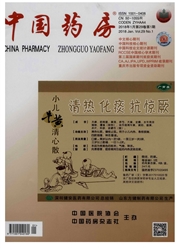

 中文摘要:
中文摘要:
目的:探讨居民对冠心病心绞痛治疗药物的支付意愿及其影响因素.方法:采用条件价值评估法中开放式及封闭式问题相结合的方式设计调查问卷,对贵阳市部分居民进行面对面、一对一对地调查访谈,并就调查结果进行分析.结果:共发放问卷351份,回收有效问卷351份,有效回收率为100%.受访者平均年龄为40.72岁(SD=16.86),其中51.28%(180名)为男性.受访者中67.24%(708人次)的支付意愿价格高于初始设定值;对有效率最高为98%的药物,受访者的平均支付意愿为457.44元/月(价格初始设定值为200元/月);而对有效率最低为10%的药物,受访者的平均支付意愿为28.41元/月(价格初始设定值为20元/月).药物的有效率越高,受访者的支付意愿也越高,且女性、少数民族、年龄在45岁及以下、本科及以上学历、不参加体育锻炼的受访者支付意愿较高;另外,当调查问卷中意愿支付法部分药物有效率从低到高排列或所假设的初始状态为重度冠心病心绞痛时受访者的支付意愿也较高.结论:治疗药物的有效率、意愿支付法问题的排列顺序、所假设的初始疾病严重程度、受访者的个人特征及健康习惯等因素均对其支付意愿有显著影响.条件价值评估法可有效用于调查普通居民对药物的支付意愿.
 英文摘要:
英文摘要:
OBJECTIVE:To explore the willingness-to-pay and influential factors of citizens for angina pectoris treatment. METHODS:Close-ended questionnaire and open-ended questionnaire that are the two question types of contingent valuation meth-od was adopted to interview the citizens in Guiyang city by face to face and one to one,and the result was analyzed. RESULUTS:Totally 351 questionnaires were sent out and 351 were valid with effective rate of 100%. The average age was 40.72 years old (SD=16.86) with 51.28%(108 pearsons) males. And willingness-to-pay price of 67.24%(708 pearsons or times) was higher than initial setting price;an average of 457.44 yuan per month was given to the treatment with 98% effectiveness(the initial set-ting price was 200 yuan per month);and an average of 28.41 yuan per month was given to the treatment with 10% effectiveness (the initial setting price was 20 yuan per month). The better the effectiveness,the larger the willingness-to-pay value was given,a woman,belonging to the minority group,aged 45 and above,college educational level and above,or never do physical exercise gave the larger willingness-to-pay values;moreover,the larger willingness-to-pay values were given when the severity of original hypothesis health state was severe,or the questions were displayed with the high effectiveness of treatment followed the low effec-tiveness. CONCLUSIONS:The effectiveness of treatment,the order of willingness-to-pay questions,the original hypothesis of health state,the characteristics and habits of patients are the factors affecting the willingness-to-pay of patients. Contingent valua-tion method is an effective way to investigate the willingness-to-pay values.
 同期刊论文项目
同期刊论文项目
 同项目期刊论文
同项目期刊论文
 期刊信息
期刊信息
